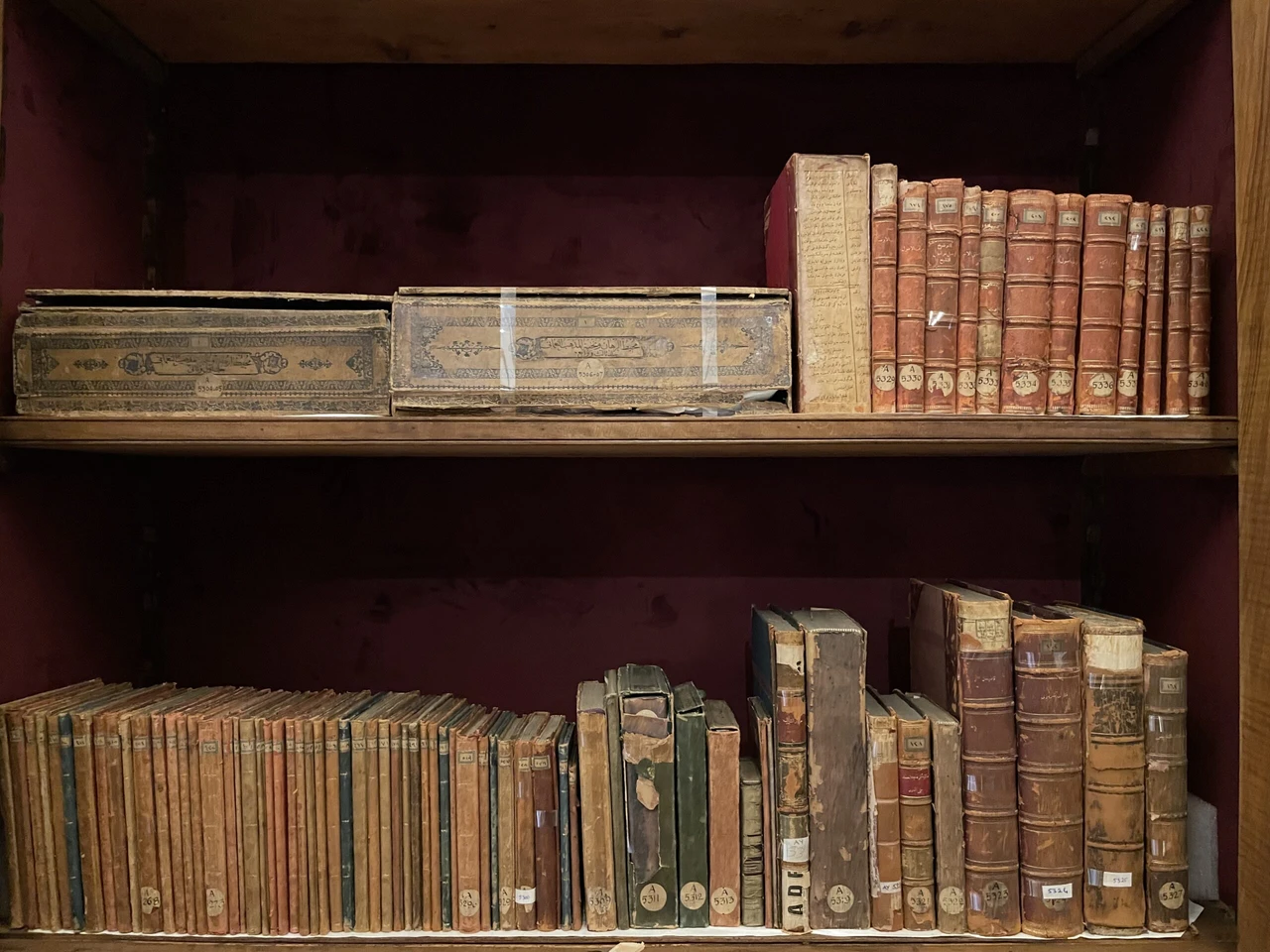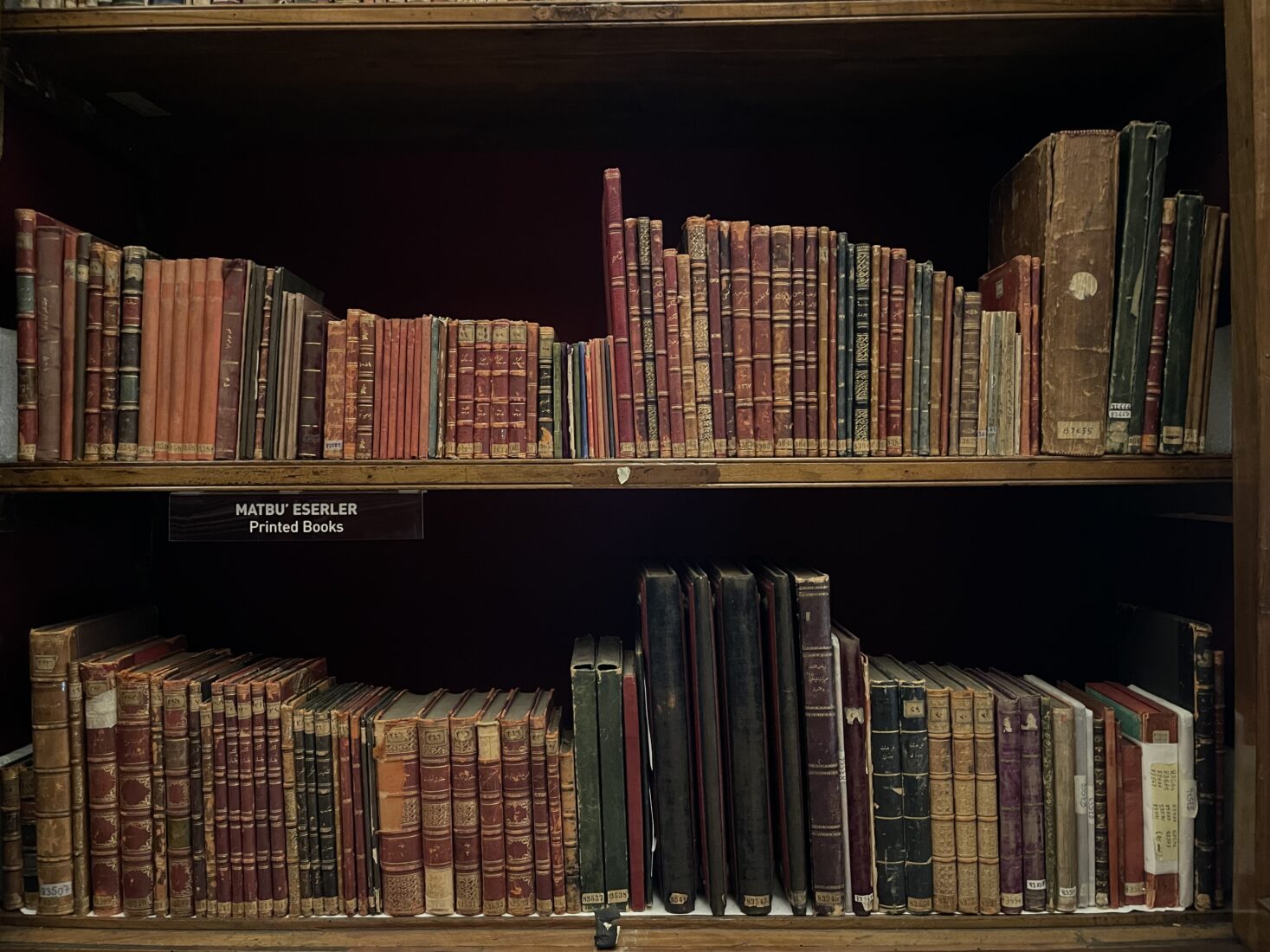AI tool translates Ottoman Turkish treasures into 30 languages
 Yildiz Palace Library, Istanbul, Türkiye, July 18, 2024. (Photo by Koray Erdogan/Türkiye Today)
Yildiz Palace Library, Istanbul, Türkiye, July 18, 2024. (Photo by Koray Erdogan/Türkiye Today)
Over seven centuries, the Ottoman Empire produced thousands of works across various fields, from Islamic sciences and literature to astronomy and physics. However, due to the “language barrier,” many of these cultural treasures have been inaccessible to ordinary readers. Now, AI-based translation platforms are starting to bring these treasures to the present day.
Platforms are on the way to help understand and transfer works written in Ottoman Turkish to modern publications. One such platform is Transleyt, developed by Sadi Ozgur and his team. Transleyt can translate Ottoman texts and publications into modern Turkish as well as 30 different languages. It also features a simplification function for complex texts. Transleyt is expected to contribute not only to the reading of historical texts but also to academic research and Ottoman book publishing. Users can choose the style and tone of the translation, such as “friendly” or “humorous.”
One of Transleyt’s most impressive features is its ability to transcribe Ottoman poetry, translate it into modern Turkish, and provide commentary on its meaning. The platform also allows users to translate a sentence into the style of any era between the 13th and 21st centuries.
‘We set out to promote Turkish culture’
After the launch at Istanbul University on August 21, Transleyt will be available for users.
Sadi Ozgur explained, “We embarked on this project to promote Turkish culture through Ottoman texts. However, after starting with translating Ottoman Turkish texts into modern Turkish, we decided to create a platform that also translates Ottoman texts into other world languages. As a result, we developed an AI-based translation and media processing platform. It can cross-translate texts in thirty languages, including Ottoman Turkish. Transleyt allows translations of Ottoman texts into English, German, and even Chinese. It includes essential features like image and sound translation and OCR that will facilitate the work of researchers and writers dealing with Ottoman Turkish.”
Sadi Ozgur stated that AI-based translation platforms for Ottoman Turkish are being newly developed in Türkiye.
“Our initial goal is to make printed texts and neat manuscripts from the 1720s, when printing started in the Ottoman Empire, understandably. Our later goal is to make it possible to transfer other manuscript texts into modern Turkish. This way, we will open Ottoman Turkish academic and literary works and documents to the modern world. Many Ottoman documents have already been digitized. We previously compiled Ottoman digital works and documents into a pool with the Wikilala Project. Users will be able to understand Ottoman texts obtained from here or other sources.”

‘We will analyze Ottoman works better’
Sadi Ozgur emphasized that Transleyt will greatly contribute to the cultural and academic world.
He said, “In Türkiye, translating a five-century-old Ottoman book into modern Turkish is considered a significant achievement. An English academic does not have this concern; they are expected to analyze and draw conclusions. The Transleyt platform will shorten the translation phase, making it easier to analyze Ottoman works. Thus, the duration of academic studies will be reduced. Additionally, faster translation will make it easier to transfer Ottoman books into modern Turkish. This means we will have easier access to the academic and cultural treasures of the Ottomans. Perhaps new literary works will emerge.”
This innovation not only aids in historical and literary research but also enriches modern understanding of the Ottoman Empire’s vast intellectual heritage. As Transleyt continues to evolve, it has the potential to uncover new insights and inspire fresh scholarly and literary endeavors.



